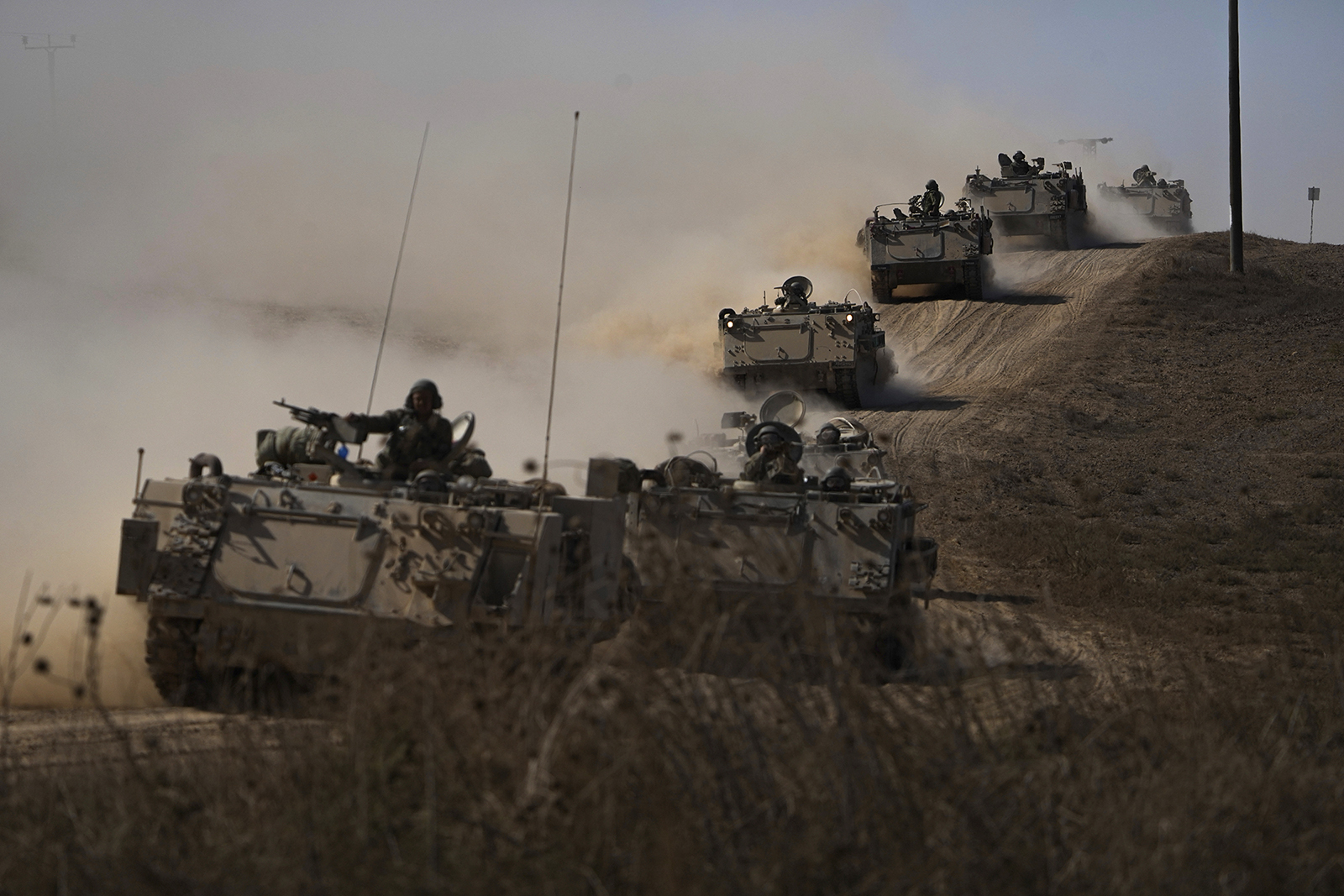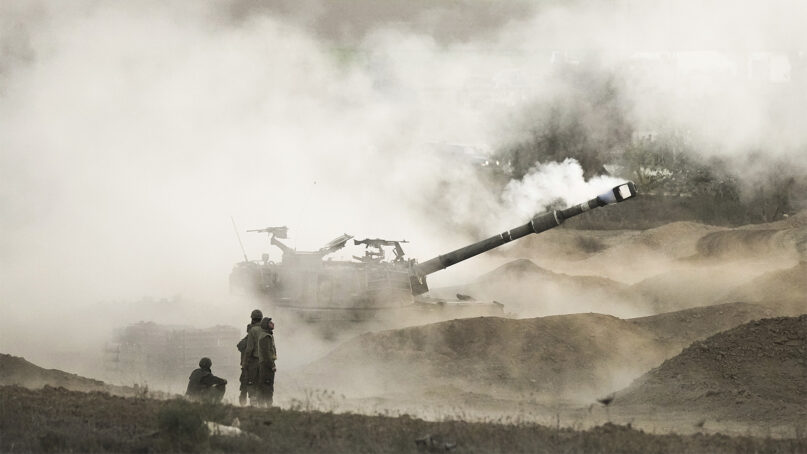JERUSALEM (RNS) — In ordinary times, Moshe, a 38-year-old Haredi, or ultra-Orthodox, Jewish Israeli, would be working while also focusing on his Torah studies.
But after Hamas terrorists attacked Israel on Oct. 7, killing more than 1,400 and prompting Israel to declare war, Moshe, who asked that his name not be published so as not to draw attention to himself, committed to voluntarily serve in the Israel Defense Forces for as long as the hostilities last.
He is far from alone. In an unprecedented move, an estimated 2,000 Haredi men with no military experience have volunteered for IDF service. Although past the age when Israelis are typically drafted, the army is accepting these volunteers due to the unprecedented scope of its war with Hamas.
“This isn’t a drill. This is an actual war,” Moshe told Religion News Service. “During wartime, we must all do the maximum. Anyone who isn’t studying Torah full time should contribute.”
The Haredi men’s sudden eagerness to serve is significant politically and socially. Since Israel’s establishment in 1948, young Haredim have been exempt from the mandatory military service required of their non-Haredi counterparts.
The exemption is deeply resented by many non-Haredi Israelis. Most must serve at least 32 months, while almost all young ultra-Orthodox men shun service. Haredi rabbis insist that fervent prayer for Israel’s security is just as important as military service.
Although the High Court struck down the exemption in 2017 and ordered the Knesset, the Israeli parliament, to create a new, more equitable military draft, the Knesset has never complied with the court’s order. Instead, Haredi parliamentarians are pressing for a permanent exemption for all full-time Yeshiva students.
According to a September survey by Hiddush, an organization that advocates for religious freedom in Israel, 78% of the Israeli public supports the conscription of yeshiva students, either en masse or according to an annual quota that would exempt the most promising students and draft the rest.
The willingness to share the military burden even briefly “is a positive development,” said Gilad Malach, director of the Ultra-Orthodox in Israel program at the Israel Democracy Institute, a nongovernmental research organization. “There is a lot of tension over the fact that Haredim barely serve in the IDF, so the volunteers provide a sense of solidarity with the general society.”
While the support these men will provide as drivers or cooks for a few weeks or months “is mostly symbolic,” Malach said, “during these horrible days of war, it gives a lot of people in general society a bit of hope. It also gives the volunteers a feeling of belonging to the state of Israel. It’s not just a declaration. It’s a fact.”

Israeli tanks head toward the Gaza Strip border in southern Israel on Oct. 13, 2023. (AP Photo/Ariel Schalit)
The voluntary enlistment of Haredi, Malach believes, may be a turning point in the debate over the exemptions and may shift the balance of power between religious and secular society in Israeli politics. At a minimum, as the death toll of IDF soldiers continues to grow, non-Haredi politicians will have a harder time selling a full-scale yeshiva student exemption, he said.
“There was public anger surrounding a full exemption even before the war,” Malach noted.
Malach emphasized that the Haredi volunteers are from the “more modern” segment of Haredi society. Most are already in the workforce, having completed their full-time Torah study while in their mid-to-late 20s or 30s.
But Uri Regev, Hiddush’s CEO, praised the volunteers, noting that even these more moderate Haredis are swimming against the wishes of many Haredi leaders. “It is long overdue that the Haredi community acknowledges their responsibility for sharing in the security and economic burden that Israeli society is shouldering, and not just in times of extreme pain and anxiety,” said Regev.
The initiative to recruit Haredi men came largely from Haredi Rabbi Ram Moshe Ravad, a former chief rabbi of the Israeli air force.
Soon after the war began, a handful of men no longer involved in formal study in yeshiva asked Ravad how they might volunteer. Within a few hours of the Hamas attack, some 450 had expressed interest, Ravad said, and the number continues to increase.
“People think that Haredim are against the army. That’s not true. They’re in favor of Torah learning. If it’s between studying Torah or being drafted into the army, they’ll pick Torah study,” Ravad said.
“Now that the government isn’t telling them to leave the yeshiva, they’re coming. They’re contributing. I’m sure that if the government stopped insisting that yeshiva students leave yeshiva study and be drafted, more would volunteer to join the IDF,” the rabbi said.
Moshe, who has volunteered for the IDF himself, is eager to help any way he can. Before he volunteered for the military, he volunteered with ZAKA, the search-and-rescue organization that, among other tasks, gathered the body parts of every man, woman and child murdered by Hamas, and assisted burial societies overwhelmed by the number of casualties.
He isn’t concerned about what job he will be assigned in the army. “Whatever they tell me to do, I will do.”





